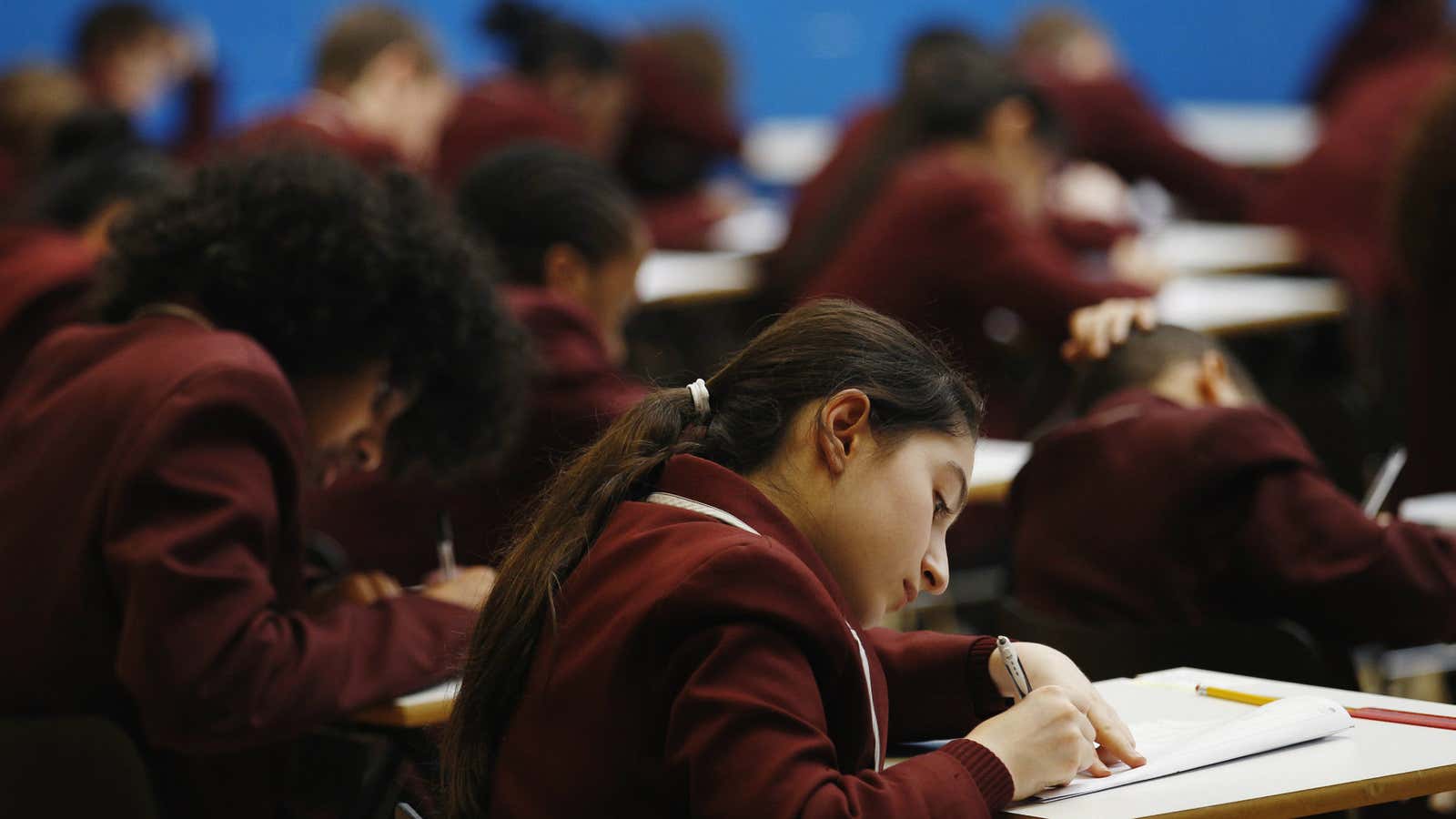The poorest Chinese students in Britain are much more likely to go to university than the richest white ones, according to a new report.
And Chinese students aren’t the only ones trouncing their white British peers: all ethnic minority groups in England are, on average, more likely to go to university than their white native peers, says the Institute for Fiscal Studies in research produced for the British Departments of Education and Business, Innovation and Skills.
Performance in school cannot explain the differences. White British students, on average, perform better than Black, Pakistani, and Bangledeshi students on national tests and exams taken at school. But all three of those minority groups attend university in higher proportions than whites:
The report looked at census data from half a million students, linking all pupils going to high school in England to all students going to university. It does not look at admissions data, which has shown that ethnic minority students are marginally less likely to be admitted to university compared with equally qualified white students. It focused on those who took a nationwide high school exam called the GCSE in 2007-08, who then could have gone to university at age 18 in 2010-11 or age 19 in 2011-12.
The report’s findings were both celebrated and used to signal alarm bells. James Kirkup, writing in The Telegraph, said:
This is great news, wholly positive stuff, the sort of thing that should make everyone in Britain proud. It says we’ve created the sort of society where racism and prejudice do not prevent kids who just happen not be white from getting a higher education and all the opportunities that entails.
But he also noted that it was deeply troubling for the poorest white British kids, 13% of whom go to university compared with 53% of the poorest Indian kids and 30% of the poorest Black Caribbean kids (and 55% of the richest white British kids).
What’s more, university attendance rates for ethnic minority groups are rising fast: Black African pupils saw their participation rates increase by 11 percentage points between the kids who sat their GCSEs in 2003 and those who took them in 2008. For white British students, participation rates rose by only four percentage points over the same period.
Though the authors could not pinpoint the reasons white British students are falling behind, they said that “it seems plausible that aspirations and expectations might play a role.” They need to do more research to find out.
And lest anyone think Britain is becoming more of a meritocracy, it is not. The richest students are three times more likely to go to university and about seven times more likely to go to a selective institution than those from the lowest socio-economic group. Here, again, white British students are the outlier—in terms of university attendance rates, the gap between rich and poor was the widest for any ethnic group in the study.




